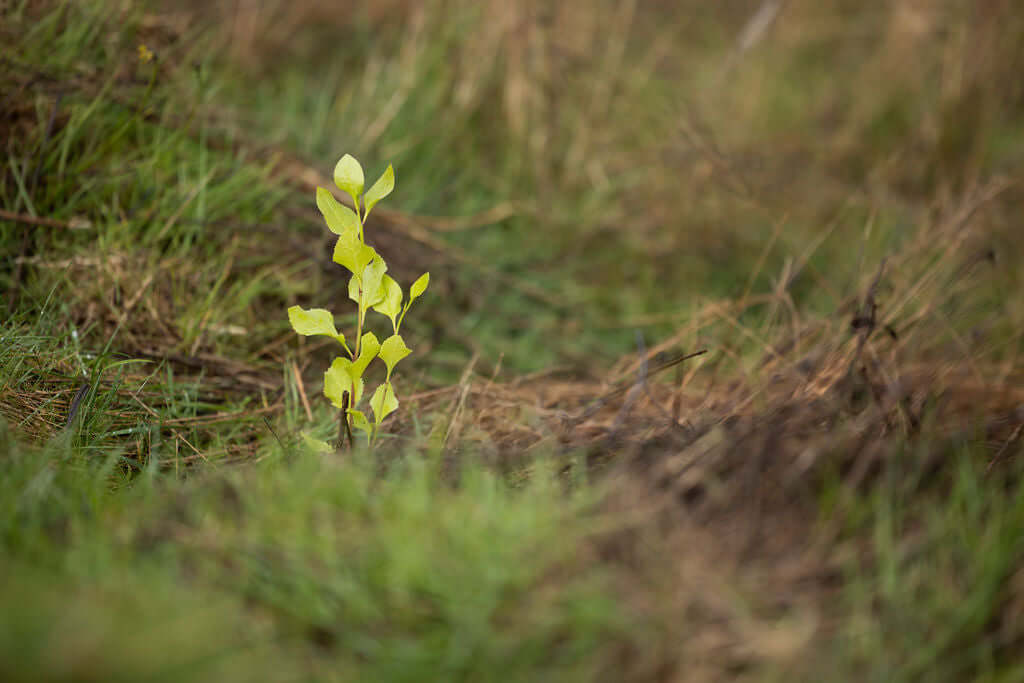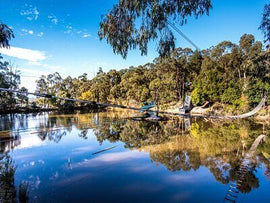Greenfleet has completed revegetation work twice at Sunday Morning Hills. In 2014, we planted more than 120,000 native trees on the property. The motivation of this original project was conservation with broad scale restoration taking place across the property.
Majority of the planting on this site was done via direct seeding where seeds are sewn straight into the soil. The benefit of this method is that it mimics nature more effectively than seedlings which are generally propagated and grown in nurseries before being transferred to the site.
However, Greenfleet tailor our planting method based on the species we’re planting. For example, while we mainly utilised direct seeding in this project, we planted the Buloke (Allocasuarina luehmannii) as seedlings as they grow more effectively this way. This was an important species used in this project as the Bull Oak woodland is considered critically endangered in the area.
This part of the planting saw many other native species planted including Hickory Wattle (Acacia implexa), Slaty Sheoak (Allocasuarina muelleriana), Yellow Gum (Eucalyptus leucoxylon) and many more. The trees planted are connecting woodlands and creating large scale habitat links for wildlife in the area. The property adjoins the Mt Brenanah forest which connects to Mount Kooyoora and forms part of the habitat linkage across multiple Greenfleet projects in the Wedderburn area.
The broad scale of the planting and wide variety of native tree species planted means that this project is great for wildlife. The Yellow Footed Antechinus (Antechinus flavipes) is one of the small marsupials you can find on the site. Other wildlife on the property includes Kangaroos and Stumpy Tailed Lizards, Blue Tongue Lizards and Eastern Brown Snakes.
Following the original planting, we returned to undertake creek restoration work on the property in 2019. This involved the planting of about 200Grey Box (Eucalyptus microcarpa) and Yellow Box (Eucalyptus melliodora) seedlings and the direct seeding of about 2kg of native seeds from multiple species. The aim of this was to reduce erosion due to land clearing and restore the creek’s ecosystem.
Over the lifetime of the trees at Sunday Morning Hills, the forest will sequester nearly 53,000 tonnes of CO2-e from the atmosphere. This means that the trees will capture enough carbon to offset a years’ worth of emissions from more than 12,000 cars.
You can join the fight against climate change and offset your emissions today.

Location Size
Planting Dates
Species
- Eucalyptus microcarpa
- Eucalyptus leucoxylon
- Eucalyptus polyanthemos
- Eucalytus goniocalyx
- Eucalyptus camaldulensis
- Eucalyptus melliodora
- Acacia implexa
- Acacia pycnantha
- Allocasuarina verticillata
- Melaleuca lanceolata
- Acacia acinacea
- Acacia euthycarpa
- Acacia genistifolia
- Acacia paradoxa
- Acacia brachybotrya
- Acacia montana
- Dodonaea viscosa ssp. Cuneata
- Allocasuarina muelleriana
- Cassinia arcuata
- Daviesia ulicifolia ssp ruscifolia




